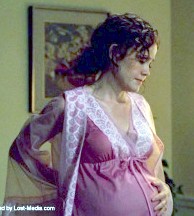
Mad scientist working on a Grand Theory of Everything
This is my grand theory of everything — from time travel to destiny — in LOST.
I’m starting with the premise that the writers want to avoid major time-travel paradoxes, that they don’t want to deal with problems such as a character being his own grandfather, or killing his mother before he was born, etc. Damien and Carlton have said as much, in one of their interviews (see this video starting at 4:05), and I’m going to take them at their word.
As part of that premise, I’m going to assume that the characters that we know were on Flight 815 cannot be killed while time-traveling in the past to any time prior to Flight 815.
For example, in LaFleur, Sawyer, while trying to rescue Amy, narrowly escaped being shot by an Other. Juliet killed the Other and saved Sawyer’s life. But what if Juliet hadn’t been there and instead, Sawyer had been killed?
It couldn’t happen. If Sawyer was killed in the 1970s, he could not be alive in 2004, and the future would have to be altered. That would create the kind of classic time-travel paradox problem that the show wants to avoid.
Therefore, even if Juliet hadn’t saved Sawyer’s life, his life would have been saved in some other way — because Sawyer simply could not be killed. No one would be “allowed” to kill him, and he would not be “allowed” to kill himself.
That means the characters, while they are traveling in the past, do not have total freedom. They lack, to a certain extent, free will. And that is because they are in the past.
Now, think about how this compares to the way the characters act in the present, and something very strange emerges. Even in the present, the characters appear to lack free will. Locke talks often about “destiny,” about what the Island compels them to do. Even Jack is starting to come around to that point of view. Christian Shephard told Locke that Locke was supposed to turn the wheel, not Ben. Ben said they all had to go back. Eloise Hawking said they could do it only in a certain specific way.
All these characters believe that their actions are constrained. But this is exactly the same thing that happens to characters who are time-traveling in the past!
So why should this also be happening in the present?
How about this: Perhaps the present may not really be the present.
Think about how we watch the show. The show started with the crash of Flight 815, and that became our reference point for the timeline of the story. We saw Flight 815 and the subsequent events on the Island as being in the present. We saw the flashbacks as being in the past, and the flashforwards as being in the future.
But what if Flight 815 is not really the present, for the characters? What if their actual “present” is really decades after Flight 815 took off? What if all their experiences that we’ve seen, including the crash of Flight 815, are all part of the past to the people involved? What if they have been time-traveling in the past all along?
That would explain why their actions are as limited as the actions of the time travelers — because they are time travelers themselves. It might explain why all the Oceanic 6 had to go back, and why the conditions on Flight 315 had to replicate the conditions on 815 so closely. It would certainly explain Locke’s preoccupation with the idea of “destiny.”
If this theory is right, what happens to Locke on the Island would, in fact, be predetermined – because it has actually already happened. But what if Locke didn’t know that? What if he wasn’t aware that he was time traveling in the past?
Then he would have to grope for another explanation for why he sensed that he couldn’t exercise free will. He’d have to use concepts that were familiar to him — concepts such as destiny and fate. To Locke, it would appear that it was destiny that was pulling his strings.
Cool picture of the mad scientist via Wikiepdia. GNU FDL.











